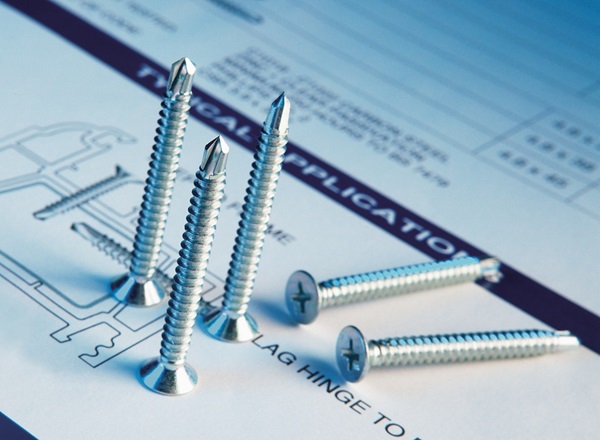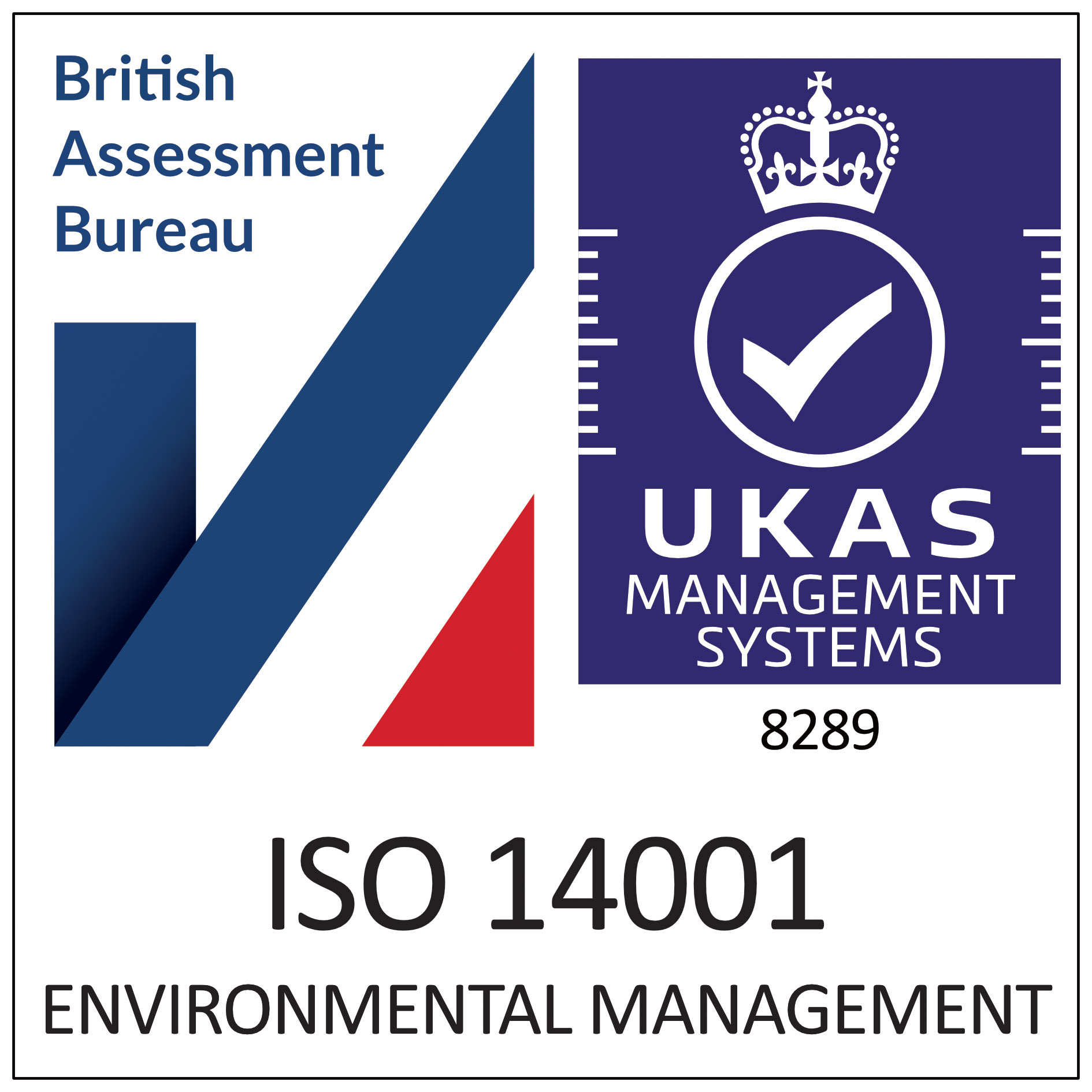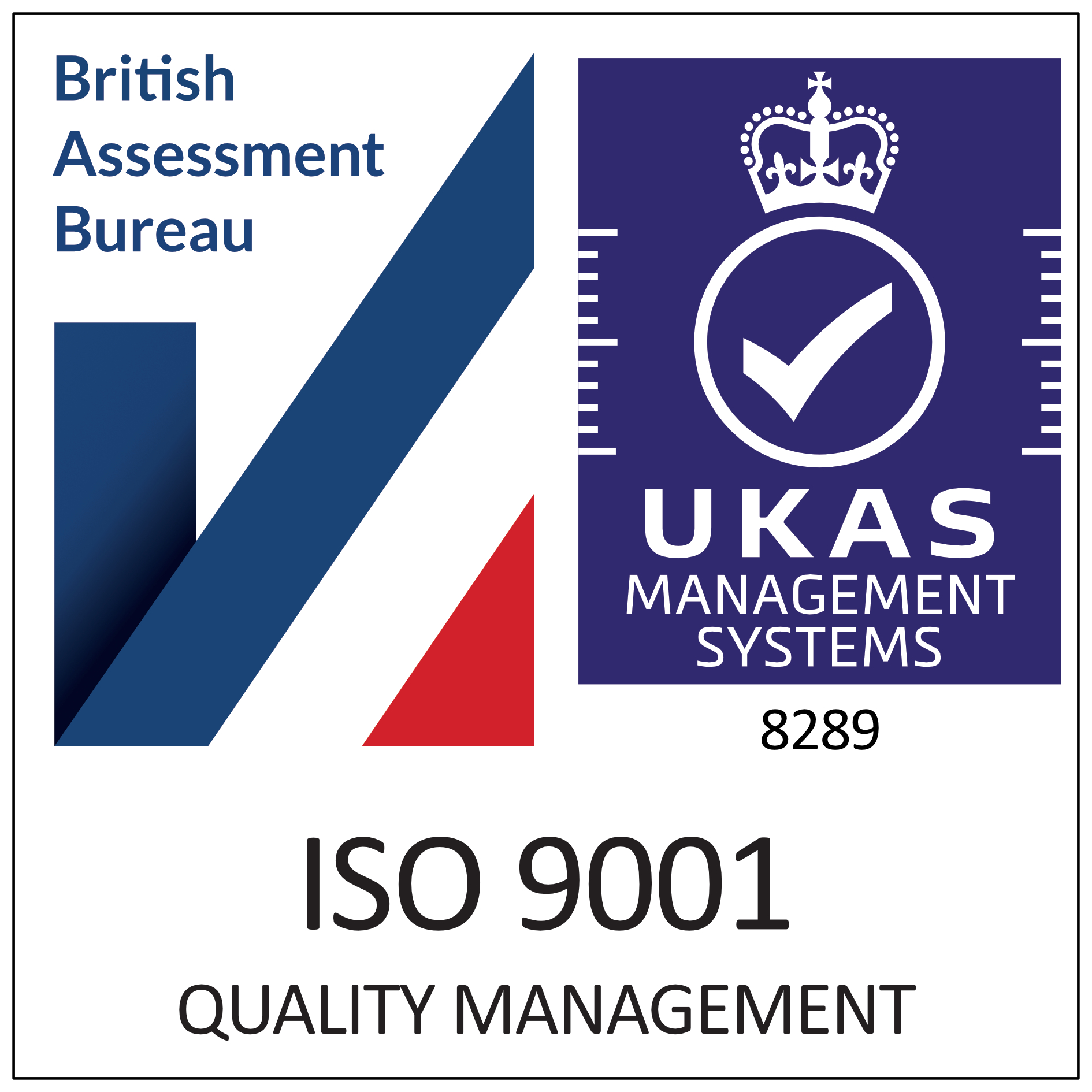The fastener may be the smallest and lowest unit cost component used in the manufacture of windows and doors, but it actually performs a huge role in their long term quality and performance. Hence why it is important to choose the best fasteners for the job.
But choosing the correct fasteners isn’t only about getting the head style, the thread form, diameter and length right. The type of metal that the screw is manufactured from is also crucially important – here’s why.
Any product used as part of the building envelope – the walls, roof, floor and, importantly, the windows and doors, must be designed and manufactured in a way that means it can withstand the elements. That means remaining fit for purpose after exposure to many years of rain, wind, heat and cold.
The UK’s unrelenting cycle of weather, therefore, makes durability a key consideration when you are selecting all the materials needed for window and door manufacturing. This is particularly important for metal products, given their susceptibility to corrosion once the window or door is in-situ.
When choosing metal components, remember the big regional and local variations that exist in the weather and climate. Rainfall levels are highest in areas such as North West England, North Wales and the Scottish Highlands, but far lower in regions including Eastern England, London and the South East. And temperature variations can be large too, with cities like Aberdeen and Leeds being far colder on average than Portsmouth or Swansea, for example.
And whilst moisture levels and temperature strongly influence the potential for corrosion on fasteners, so too does the chemical composition of the atmosphere. If the property into which windows and doors are being installed is located close to the sea, the local atmosphere will have increased salinity due to the salt water of the sea.
This salty air massively accelerates the oxidation process of steel components used in the building envelope – a process more commonly known as rusting. So too does heavily polluted air in locations close to industrial areas or busy roads.
To accommodate the climatic and atmospheric variations, Rapierstar window screws are manufactured in three different types of metal. These three different alloys have different levels of resistance to corrosion to suit the risk.
Coated carbon steel
Uncoated steel will oxidise (rust) rapidly which is why we coat it to offer protection against atmospheric corrosion. In the case of Rapierstar’s StarPVCU range of screws, that means zinc plating inproportion to its thickness. This coating is typically 5–10µm (microns) and can be relied upon for long term use in dry internal conditions.
Austenitic stainless steel
Available in several grades, this alloy offers greater corrosion resistance through the addition of Chromium, Nickel and in some grades, Molybdenum. The stainless steel routinely used for Rapierstar window fasteners is Grade A2 (302) which contains between 17–19.5% Chromium and 8–10.5% Nickel. The passive outer layer resists normal atmospheric corrosion in unpolluted rural areas, but in particularly aggressive environments an upgrade to Grade A4 (316) may be required. This contains 16–18.5% Chromium and 10.5–14% Nickel, plus 2.5–3.0% Molybdenum which improves resistance to pitting.
Martensitic stainless steel
Known as 410 grade, this is similar to carbon steels. This metal can be hardened and strengthened by heat treatment in a similar way to carbon steels, which means martensitic screws are capable of drilling and self-tapping into steel reinforcement. Rapierstar 400 series fasteners are manufactured using this type of stainless steel, with the additional benefit of a Magni coating that provides an additional level of corrosion protection.
Why not just have one rust-proof metal for all screws?
A one size fits all approach to fasteners is simply not possible due to three reasons primarily:
Compatibility with other metals
Corrosion can be accelerated when different metals are joined together, such as a carbon steel fastener to an aluminium profile, through a process called galvanic corrosion. Having different options, therefore, provides a solution for the vast majority of applications.
Compatibility with window reinforcement
As austenitic stainless steel cannot be hardened, unless a bi-metallic screw is chosen (where a carbon steel drill point is welded onto the stainless steel screw) they cannot be used to drill into hard materials like metal reinforcement. Hence why a ‘hardenable’ metal – martensitic stainless steel or coated carbon steel – will typically need to be used because bi-metallic screws are prohibitively expensive.
Cost versus value
The cost of stainless steel fasteners is higher than zinc coated carbon steel screws, so for many fabricators there is a question of how the fastener choice affects the cost of a finished unit. For many customer orders, zinc coated carbon steel fasteners will be perfectly adequate, but many fabricators prefer not to take any chances and adopt a ‘belt and braces’ approach by choosing stainless steel fasteners. The choice depends on what you think is required for individual customer orders, based on factors such as the property’s location and customer expectations.
One final consideration when choosing window fasteners is aesthetics. Some fabricators and end-users may prefer that their windows feature only silver screw heads. Here you can still opt for a coated carbon steel product by choosing a zinc passivated finish, rather than the more typical passivated yellow, and stainless steel fasteners will always meet the brief. Consider too that the extra corrosion resistance offered by stainless steel fasteners may mean the heads stay in pristine condition for longer.
To talk about this topic further or learn more about Rapierstar’s range of window and door fasteners, please contact us.
This email address is being protected from spambots. You need JavaScript enabled to view it. Technical & Marketing Manager at Rapierstar Tweet to @andyhol1






